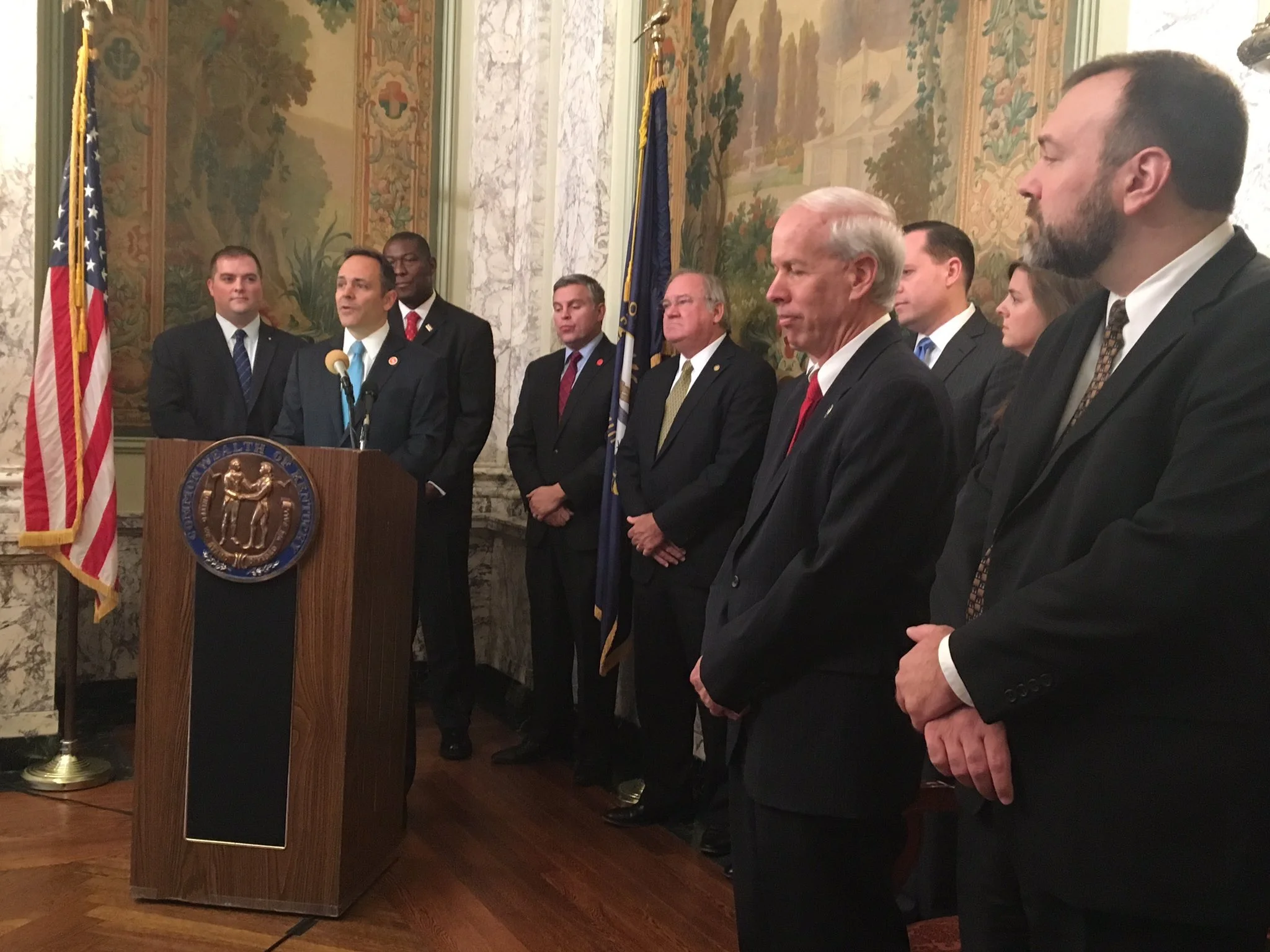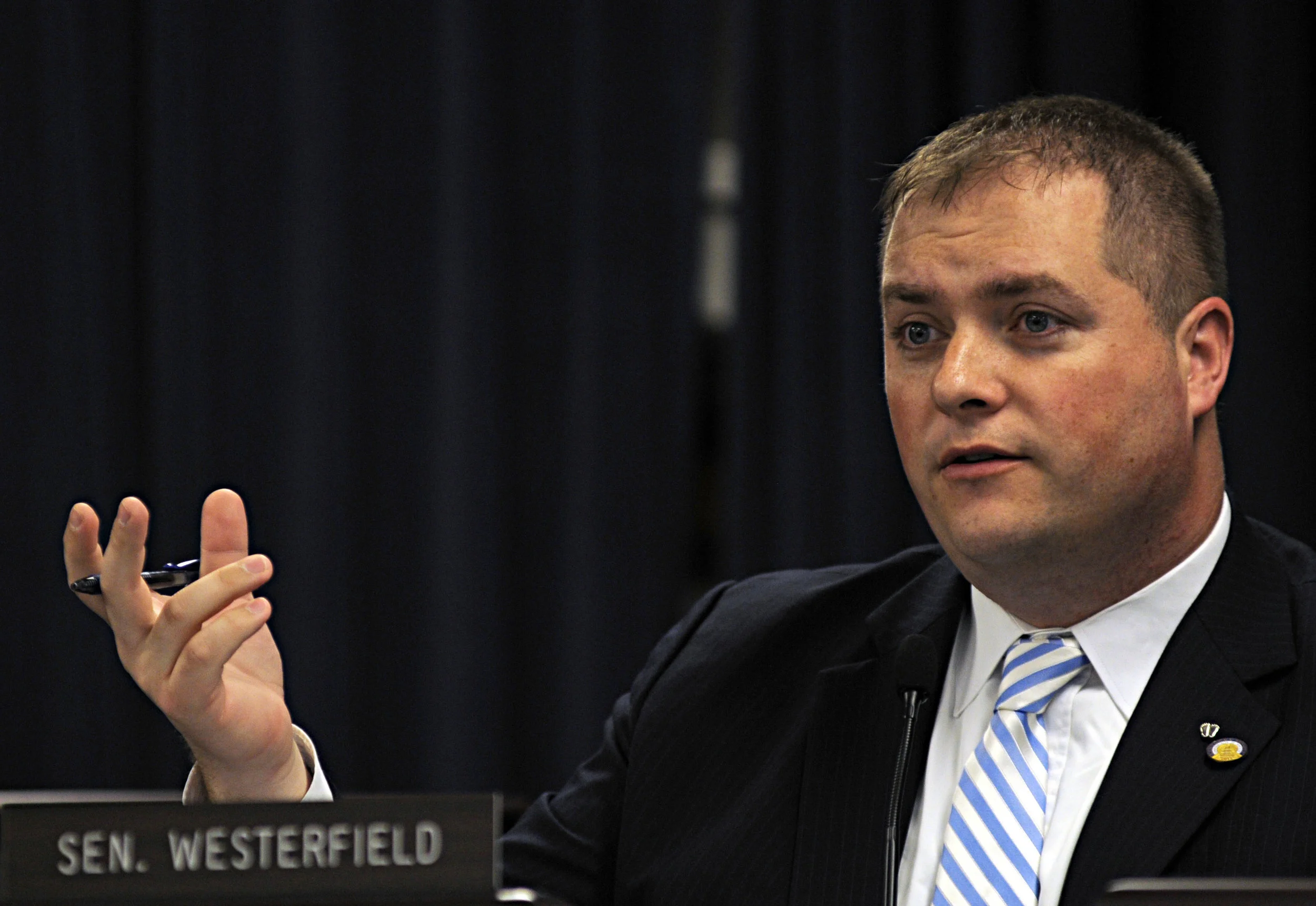The Kentucky legislature has enacted important reforms in recent years, including laws that increased substance abuse treatment in prisons, strengthened pretrial release policies, and modified sentences for certain drug offences.
“Over each of the last few years Kentucky has achieved very important milestones in justice and public safety policy in dating violence protections, national model juvenile justice reform and annual efforts to combat the ever changing threat of substance abuse,” said Sen. Whitney Westerfield, Chairman of the Senate Judiciary Committee. “However, Kentucky’s criminal code has remained largely untouched for decades, and is sorely in need of updates reflecting public policies that spend scarce taxpayer dollars wisely and improve public safety.”
The need to address the cost of criminal justice is clear. Kentucky spent nearly half a billion dollars on corrections last year, consuming funds incarcerating individuals for non-violent crimes that could otherwise benefit classrooms and job training programs. Meanwhile, inmate populations at prisons and jails remain high, criminal sentences are often inconsistent and Kentucky is leading the nation in the number of children with an incarcerated parent.
“I am hopeful that we will treat this initiative for criminal justice reform as an opportunity to build upon the redemptive philosophy that we achieved with the passage of the felony expungement legislation that Rep. Darryl Owens sponsored for many years,” said Rep. Chris Harris, of Forest Hills. “We cannot continue to try to incarcerate our way out of the problems facing our society, many of which are rooted in addiction to controlled substances and mental health issues. Addressing these pervasive issues is the key to solving the problem of the revolving door of incarceration and allowing these folks to reenter society successfully and become contributing members of their communities.”
Gov. Bevin said the bipartisan, Kentucky-led council will bring together people from across the Commonwealth – with a wide range of expertise – to look at the many complex issues that present challenges to the criminal justice system.
“I am encouraged by the diverse community of stakeholders that criminal justice reform has brought to the table,” Labor Cabinet Secretary Derrick Ramsey said. “As both an African-American and the Secretary of the Labor Cabinet, it is deeply personal to me that I help find ways to reduce recidivism and provide workforce re-entry opportunities for the thousands of Kentuckians who deserve a second chance. While there are no quick fixes to complex problems like this one, I am looking forward to collaborating with my colleagues on this council to identify real solutions needed to address this critically important issue.”
For Russell Coleman, the issues hit home when he confronted them head on as an FBI special agent.
“As someone who has been privileged to serve in our law enforcement community, I was a natural skeptic of reform,” said Coleman, a western Kentucky native, who now practices law at Frost Brown Todd in Louisville. “But when the data and experience of conservative governors in other states indicate that well-crafted reforms actually make our families safer, we can’t afford not to work together in achieving those successes in our commonwealth.”
Members of the Council include:
- Chairman John Tilley, Secretary of the Justice and Public Safety Cabinet
- Sen. Whitney Westerfield, R-Hopkinsville, Chairman of the Senate Judiciary Committee
- Rep. Darryl Owens, D-Louisville, Chairman of the House Judiciary Committee
- Derrick Ramsey, Secretary of the Labor Cabinet
- Sen. John Schickel, R-Union
- Sen. Morgan McGarvey, D-Louisville
- Rep. Denny Butler, R-Louisville
- Rep. Chris Harris, D-Forest Hills
- Dr. Allen Brenzel, Department of Behavioral Health, Cabinet for Health and Family Services
- Judge David A. Tapp, 28th Judicial Circuit Court, Division 1
- Judge-Executive Tommy Turner, LaRue County
- Amy Milliken, Warren County Attorney
- Courtney Baxter, Commonwealth’s Attorney for Oldham, Henry, Trimble counties
- Rick Sanders, Kentucky State Police Commissioner
- Damon Preston, Deputy Public Advocate, Department of Public Advocacy
- Russell Coleman, Spokesman for Kentucky Smart on Crime
- Tom Jensen, Attorney, retired Judge and former Chairman of the Senate Judiciary Committee
- Anthony Smith, Executive Director of Cities United
- Jason Woosley, Grayson County Jailer
- Bob Russell, Retired Senior Minister of Southeast Christian Church
- Bishop William Medley, Diocese of Owensboro
- Dave Adkisson, President and CEO of the Kentucky Chamber of Commerce
- Justice Daniel J. Venters, Supreme Court of Kentucky, 3rd District
###




